Ipswich: The injunction to stop a hotel housing migrants
- Published
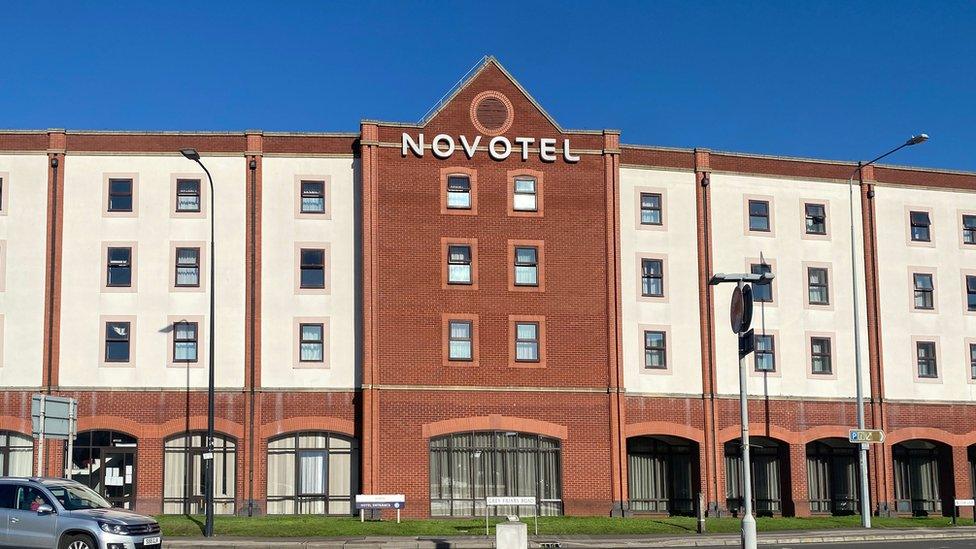
Last month the High Court issued an injunction preventing more migrants being housed the Novotel in Ipswich
Ipswich Borough Council wants to cement its High Court temporary injunction preventing a town centre hotel from housing more migrants. What are the key issues at stake and what do those in the town make of the case?
The four-star Novotel stands proud in the centre of Ipswich between the town's football ground and its historic waterfront.
Currently home to about 70 migrants, last month the High Court issued an injunction preventing more being housed there.
The injunction was sought by Labour-run Ipswich Borough Council, which claimed the use of the hotel as a migrant hostel was damaging the town.
What does the injunction mean and what is the situation like for those migrants already in the town?

'I am so scared'
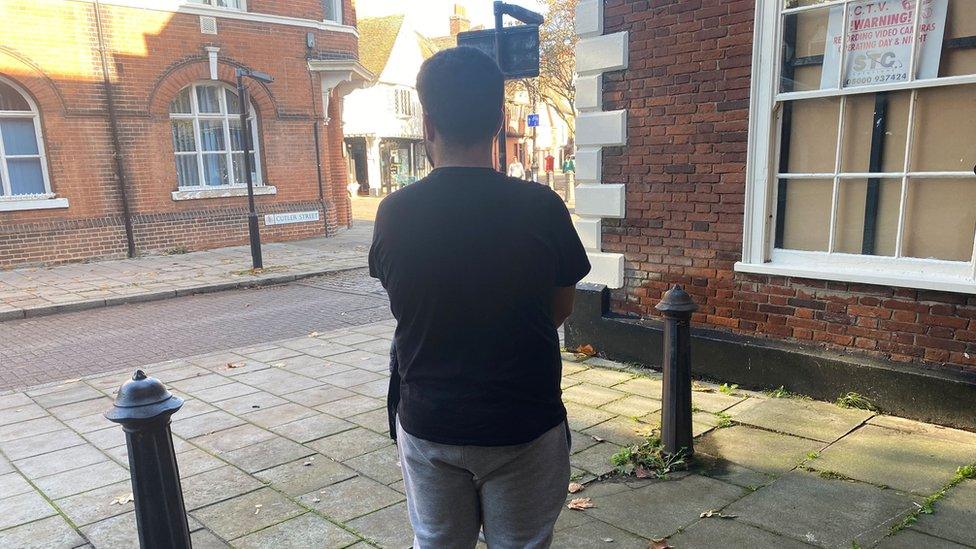
Iranian migrant Mahamed, 25, previously worked tending to his sheep
Built in the 1980s on a former Royal Mail sorting office site, the Novotel in Ipswich has more than 100 rooms and is operated by Stevenage-based Fairview Hotels.
The temporary injunction was ordered against both Fairview Hotels and Serco preventing either from "further using or facilitating" the Novotel or "any other hotel within the borough of Ipswich" as a hostel for "asylum seekers or otherwise".
The injunction did not affect the 72 people already housed at the hotel.
One of those people is Iranian migrant Mahamed, 25, who made a living as a shepherd.
He has been in Suffolk for the past two months after a 14-day journey to the UK, during which, he says, he did not eat, drink or sleep for days at a time.
He says he came from a region with a large Kurdish population where many people want a referendum on their future.
"But Iran won't let this [happen]," he says. "It is so bad, you cannot do anything there.
"I have problems in my country and get me maybe kill me or in prison."
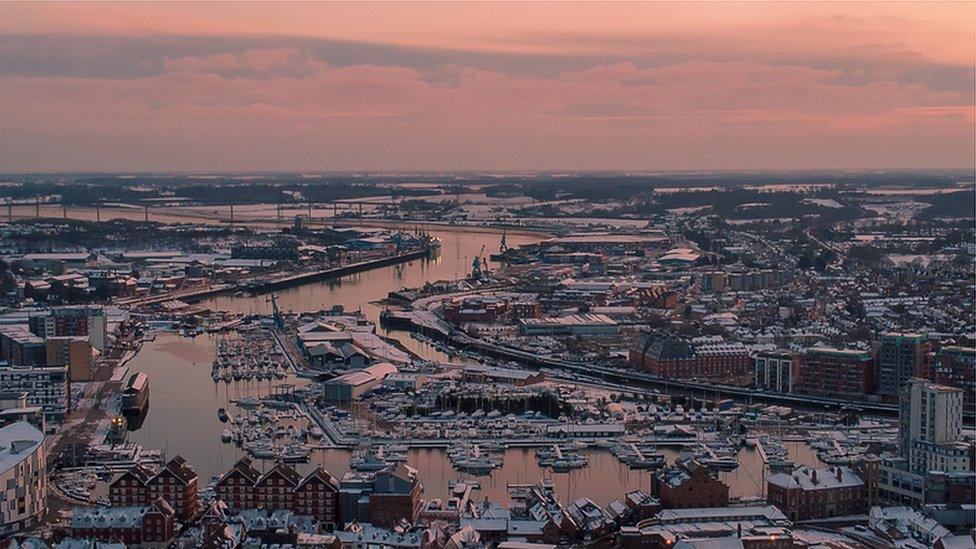
Mahamed had never heard of Ipswich before arriving, but he described the town as "so nice"
He says he is fearful for his family in Iran. "I am so scared, I don't know what is happening with my family. I am so sad."
Mahamed had never heard of Ipswich before arriving. However, he describes the town as "so nice".
He says he has no money to buy food outside the hotel.
However, Mahamed, who shares his room with a fellow migrant, says the hotel is "good".
"Everything is good in the hotel," he says. "They feed me and we have everything like a bed, a shower and shampoo and a room cleaner.
"We go to the room and sleep and eat food and sit and look at the TV, and with my friend we will talk."
He says he does not know how long he will remain at the Novotel or what his future holds.

Kamal is from Afghanistan and is currently housed in a hotel in Ipswich.
"When we arrived here we feel safe and were happy that our life doesn't fear for any other dangers," he says.
"But we stay in this hotel more than 10 months and no response from Home Office and we are worried about our future.
"Our education before, what we learn before, our skills - everything that we learned before in our country or what we know about ourselves, we forget all of them.
"Lots of people I know, they have got depression, they are depressed now.
"There isn't any dream left for us, nothing. We just hope as soon as possible Home Office give us response so that we know how to spend our life."
A third migrant - a trained architect from Iran who wished to remain anonymous - said: "Because of some political problems I was forced to leave my country and come here.
"I would like to broaden my perspective by interacting with people, by living in society as a part of the society.
"My future plan is to work as a professional architect here in the UK."

What were the plans?
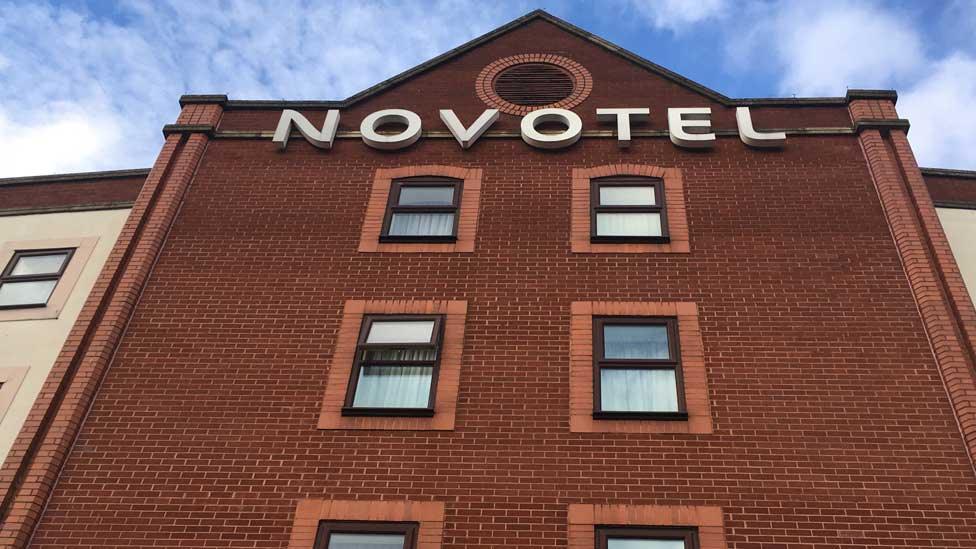
About 200 migrants were initially planned for the hotel in Ipswich
Nationally, there are currently more than more than 37,000 asylum seekers in hotels.
The Home Office initially planned to house 200 migrants at the Novotel in Ipswich, but Ipswich Borough Council claimed that would put an "unsustainable" strain on local services and warned about the impact on tourism.
Some workers at the Novotel were warned they faced redundancy over the plans.
The BBC has seen a letter to staff outlining Home Office plans to bring in its own catering staff, putting restaurant and kitchen staff at risk.
Jade Chalmers, partner at Howard Kennedy, the law firm representing Fairview Hotels (Ipswich) Ltd, said: "The UK government has a statutory duty to accommodate asylum seekers.
"The government has asked our client to assist in discharging this statutory duty by accommodating asylum seekers at its hotel.
"Local government in the form of Ipswich Borough Council has taken the draconian step of seeking an injunction against our client, rather than resolving its concerns directly with central government.
"This matter is now with the courts and our client will do everything it can to cooperate in that process."
Serco, the government contractor overseeing the housing of migrants at the hotel, said it would not comment on the injunction until after a new High Court hearing.
Ipswich Borough Council said it would not be commenting on the latest injunction hearing until it had been held.
But Ian Fisher, leader of the Conservative group, which first suggested the idea of challenging the Home Office move on planning grounds, said: "This was absolutely not a case of 'not in my back yard'.
"We've had a hotel on the edge of town used to house asylum seekers for months and I'd say 80% to 90% of the population here did not even notice.
"The main issue for us is this is the largest hotel in the town, it is in the run up to Christmas, it is a highly visible location and right in between the town centre and the waterside area - two areas we are trying to encourage visitors to explore.
"It was also the way it was forced on us. I totally understand that migrants have to have somewhere to stay.
"I think we are a welcoming enough town with enough suitable accommodation to be able to house 70 or 80 people if we were consulted about it."

'A meagre £8 per week'
It is understood migrants have been housed in hotel accommodation in the town for about 10 months.
Martin Simmonds, spokesperson for Suffolk Refugee Support, says the Ipswich-based charity is doing what it can to help.
"Asylum seekers are not allowed to work and receive very little support," he said.
"We deliver English lessons and arrange activities for people who are often stuck in limbo. The long wait for a decision causes further stress and anxiety for people who are already traumatised.
"Those in hotels get a meagre £8 per week which covers everything from clothes to non-prescription medications.
"That doesn't go very far at all so we help with essential items, often donated by generous members of the public.
"We recently provided second hand bikes so asylum seekers living outside Ipswich could get to English classes and do volunteering work with another charity in town.
"We don't think the use of hotels is ideal. We would always prefer to see people housed in the community, where they can be more independent and have a better chance to integrate.
"But asylum seekers must be accommodated safely and with dignity and have their support needs met."

You might also be interested in:

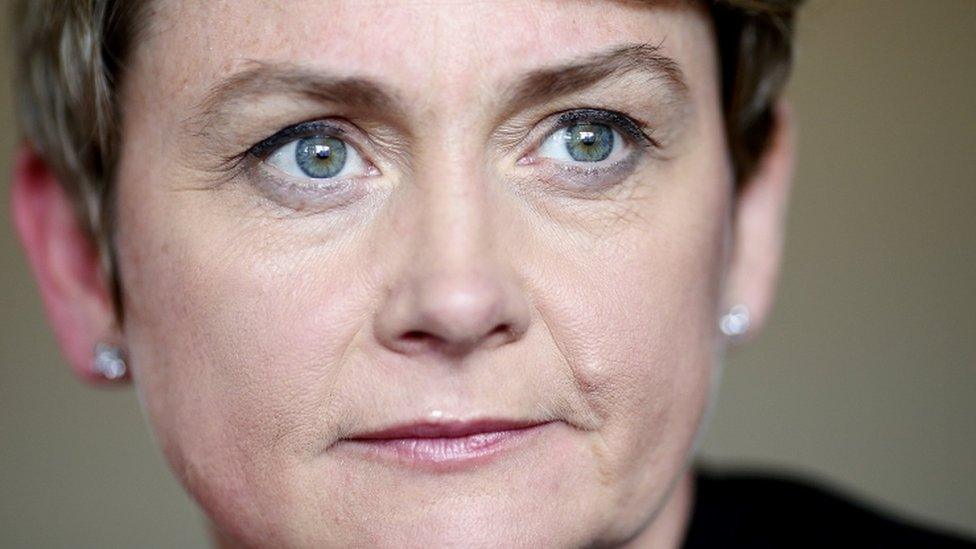
Labour MP Yvette Cooper said the system to house asylum seekers was "totally chaotic"
Speaking in Ipswich last week, the BBC asked shadow home secretary Yvette Cooper about the use of hotels to house migrants.
She said: "I think this is totally chaotic and it just feels like the Home Office has done no proper planning and had no proper systems in place.
"This is an issue where the Home Office should be working with councils right across the country.
"The backlog has grown which is causing the delays. It isn't good enough.
"We need the Home Office to set out a proper plan to reduce the need for hotels by speeding up the system and tackling this huge backlog."
The Home Office said it did not comment on operational arrangements for individual sites used for asylum accommodation, but it engaged with local authorities as early as possible.
"The number of people arriving in the UK who seek asylum and require accommodation has reached record levels, placing unprecedented pressures on the asylum system," a spokesman said.
"The government is working with all local authorities in England, Wales and Scotland to provide more suitable accommodation for asylum seekers and to end the unacceptable use of hotels, with more than £21m in grant funding already being provided to local authorities to help them respond to challenges in their area."

Find BBC News: East of England on Facebook, external, Instagram, external and Twitter, external. If you have a story suggestion email eastofenglandnews@bbc.co.uk, external
- Published4 November 2022
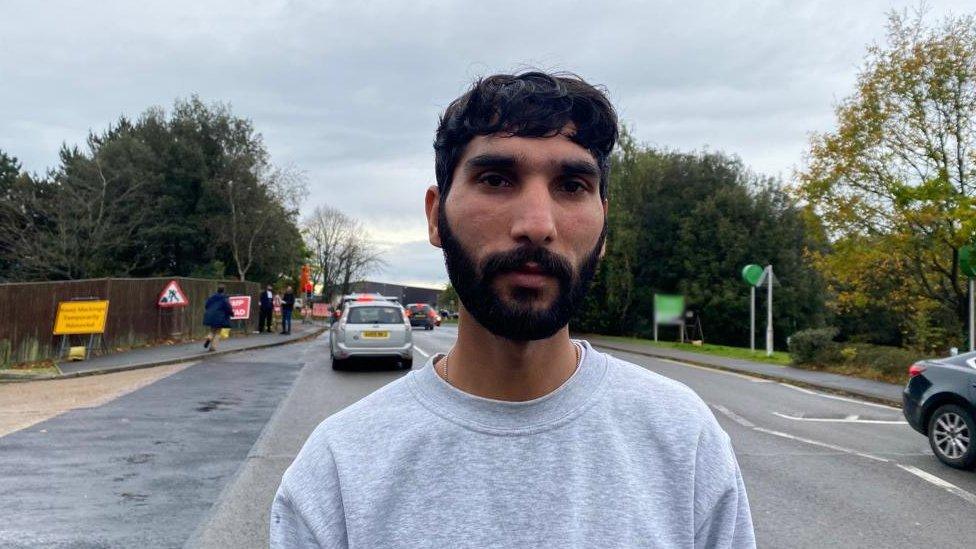
- Published27 October 2022

- Published20 October 2022
